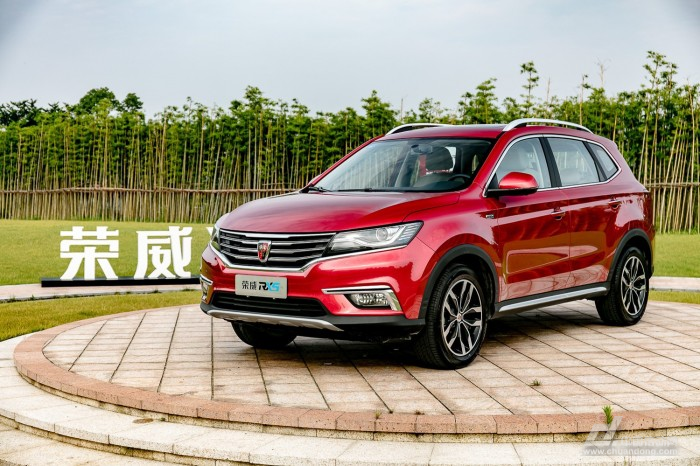
Privacy statement: Your privacy is very important to Us. Our company promises not to disclose your personal information to any external company with out your explicit permission.
According to the “Financial Times” report, China’s leading Internet companies Baidu, Alibaba, and Tencent have competed to place lucrative applications on smart phone screens in the past five years. However, they are now turning their attention to the manufacture of intelligent connected cars, the so-called "smart phones on wheels," as operating software will become the next battleground in the automotive market.

So far, Zebra, a joint venture between Alibaba and the Shanghai automaker SAIC, has pioneered the development of a car “operating system” that includes touch screens, GPS maps, and other features commonly found on smartphones. Zebra's original software, YunOSAuto, was changed to AliOS last month and has been installed on the Roewe RX5SUV. The company’s release in July 2016 was called "the world's first mass-produced connected car."
Roewe RX5 sales grew rapidly. According to data released by the China Association of Automobile Manufacturers, by July 2017, the RX5 has become China's sixth-largest selling SUV, and AliOS has announced that its users have reached 300,000. A survey of car owners’ satisfaction showed that 70% of customers claimed to choose to purchase RX5, mainly because of their operating system and large screen. Next year, Zebra plans to open up AliOS to developers and automakers. Imitation is a long-established Internet industry strategy that aims to drive penetration, similar to Google’s Android.
This month, Zebra also announced that it has established a cooperative relationship with the French-Chinese joint venture Dongfeng Peugeot-Citroën. The two companies said that Citroen will launch its first connected car equipped with AliOS next year. Zebra also revealed that the company is preparing to announce a new car cooperation project later this month because its exclusive guarantee with SAIC will soon expire. Zebra CEO Alex Shi declared that the company’s plan is to “authorize manufacturers and end users through Alibaba’s ecosystem and ecological data”. He also said that non-driving related software such as entertainment and shopping may soon become an important part of the car's appeal.
Alibaba’s competitor Tencent announced last month that it would form a joint venture with Guangzhou Automobile Group, and it seems that there is also a very similar plan with Zebra, which is “co-developing intelligent and connected automotive brands with uniqueness and competitiveness”. ChiTsang, head of Internet research at HSBC in Hong Kong, said: “This field will surely erupt. There are many internet companies that the next computing platform will be cars. When they have an operating system in the car, they have the opportunity to have this. platform."
These moves by Chinese tech giants may upset western large car manufacturers because they fear giving up control of operating systems and automotive applications. Manufacturing safety, environmental, and supply chain constraints are far more complex than making smart phones. This makes several executives in the automotive industry a little relieved that they don’t have to worry about becoming a hardware company in the short term. In China, this is a serious concern because "connectivity" may increasingly drive China's car sales. International consulting firm McKinsey research shows that when buyers are looking for cars, the software's look even exceeds the quality of the hardware.
AndyGao, an expert in the Chinese automotive industry at McKinsey, said: “Compared with European and American consumers, Chinese consumers are more closely linked. Therefore, automotive connectivity is a natural extension of their daily lives.” McKinsey published in a research report last month According to the survey, 64% of the Chinese consumers surveyed indicated that they would change brands in order to better connect the cars. In the United States and Germany, this ratio is 37% and 19% respectively. The report stated that in China, connectivity has become an essential function.
Chinese companies are also busy replacing automotive software such as Apple Carplay and Google Android Auto, which integrates smartphones with car displays. Baidu launched Baidu CarLife in 2015, similar to Carplay, and later launched DuerOS, which Baidu described as an artificial intelligence platform with voice recognition capabilities. However, Baidu’s main effort to enter the auto industry is driverless cars. The company’s Apollo driverless car platform includes hardware, software, and cloud data services for driverless cars.
Operating systems like AliOS are not as ambitious as driverless software, but they still provide Internet companies with an important way to integrate lucrative applications into cars. Just as Windows and Android are software portals for PCs and smart phones, Zebra's Alex said that the operating system will be the car's Internet connection and all "applications" must be compatible with it. However, he did not foresee any operating system that would dominate the entire automotive industry as Windows dominates personal computers. Alex said: "Internet companies will give car manufacturers more power. But I think that large car manufacturers will remain the top players in the automotive industry."
September 19, 2022
September 09, 2022
September 08, 2022
September 09, 2022
November 03, 2022
이 업체에게 이메일로 보내기
September 19, 2022
September 09, 2022
September 08, 2022
September 09, 2022
November 03, 2022

Privacy statement: Your privacy is very important to Us. Our company promises not to disclose your personal information to any external company with out your explicit permission.

Fill in more information so that we can get in touch with you faster
Privacy statement: Your privacy is very important to Us. Our company promises not to disclose your personal information to any external company with out your explicit permission.